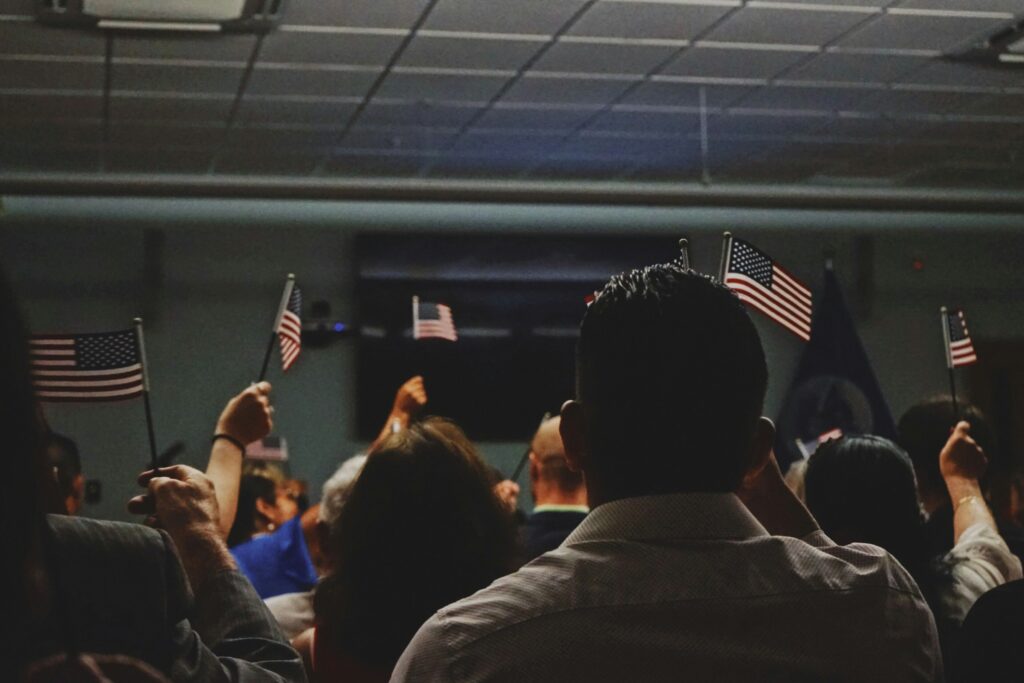By: Johana Gonzalez-Cruz

On Wednesday, November 9, 2016, I woke up to the loud murmur of Spanish voices and the bright light of the TV. Donald Trump had won the 45th presidential election — becoming the center of attention in the United States. My parents, in clear despair, drove me to school like any other day. I sat silently in the back seat of our minivan, holding back tears. I felt the world around me spiraling as I understood our family was forever jeopardized. Walking into my third grade classroom, I felt a heavy shift in the air. What was usually a lively, chatter filled third grade classroom, was now a place of lost hope. Like me, many of my classmates, who were children of immigrants, held the same question: Are my parents going to be deported?
At eight years old, I held these concerns and much more. Now, as a 17 year old preparing to enter adulthood, those fears remain. As a new wave of uncertainty for undocumented immigrants arises, flashbacks from what my life looked like eight years ago return. The trauma and anxiety I experienced as a child had only intensified over time. Yet, I didn’t fully recognize how much I was carrying until a few months ago, when Donald Trump was elected as president for his second term.
With a matured perspective and more lived experiences, I now fully understand the lasting emotional cost these moments carry for children of immigrants like myself. It’s much more than fear — it’s the trauma that silently builds over time. Today, I find myself living a version similar to the same fear I had eight years ago.
My mother, an immigrant from Central Mexico, came to the United States 23 years ago on a travel visa. After her visa expired, she remained in the country to build a life here. As a young woman, she earned a full scholarship to her state university, became a practicing estate lawyer, then left behind her career in search of a new path of life. She sacrificed everything familiar for the chance at new opportunities and experiences — both for herself and her future children. Two years ago, she became eligible to apply for permanent residency through a formal legal process with my older brother in support as her co-sponsor. My father, on the other hand, is not currently in a position to apply for residency due to a difference in circumstances. While he has explored other options, it’s likely he will have to wait until I turn 21 to be eligible for sponsorship. his co-sponsor. Despite the uncertainty surrounding my father’s case, we’ve remained hopeful about my mother’s. However, her case has been anything but easy.
With new restrictions being put in place, my mother’s attempt at obtaining a legal residency has encountered several obstacles. Tight restrictions, changing policies, and long wait periods have slowed down her case, making her feel hopeless. Despite this, her lawyer has been transparent with the ongoing changes and has shared certainty about a positive outcome. However, without the assistance of specialty programs or resources like Temporary Protected Status (TPS), she feels her case is still at a disadvantage.
As children of immigrants, we often carry the same emotions our parents feel. For me, what hurts my parents, hurts me. Since the ongoing policy shifts, there have been several moments of hardship. Moments where my mother burst into tears and my dad prayed in silence. Each day, it gets more difficult to maintain calm. As a child, I never thought I would be the one they came to for support.
To better understand the struggle for children of immigrants and what can be done to provide support, I talked to Ms. Monica Romo. Ms. Romo is the senior program coordinator for Girasol, a program at the University of Texas at Austin’s Institute for Child & Family Wellbeing. Girasol collaborates with various communities to support immigrants facing trauma by offering educational resources, group sessions, and training for service providers and students on immigration, trauma, and community care.
In her work, Romo says that many of the immigrant youth “carry a heavy emotional load that often goes unnoticed.” These burdens, she explained, “can include depression, anxiety, trauma (both past and ongoing), self-harm, feelings of isolation, identity confusion, and stress in their relationships, both within their families and among peers.”
To support immigrant youth, Romo and her team at Girasol focus on building “healthy coping strategies and explore what safe, respectful relationships look like, including how to set boundaries” as well as helping youth navigate “ongoing or recent traumatic experiences” where they “create safety plans or connect them to emergency mental health services when needed.” Romo emphasizes that “a lot of this work is about making space for them to feel seen and heard—something many of them don’t experience often enough.” Romo also notes the need to normalize conversations about emotions, build trust with families, make culturally competent care accessible, and support children regardless of their backgrounds. “What they need the most is what all children deserve: to feel safe, supported, and unconditionally valued.”
For Romo, supporting immigrant youth means reducing isolation and “creating more inclusive spaces through schools, community centers of youth programs,” she says. On a larger scale, she emphasizes that “we need to advocate for access to healthcare, including mental health services, regardless of immigration status. And she reminds us: “When we invest in the emotional well being of immigrant youth, we invest in the well being of our entire community.”
Today, the issues children of immigrants face are beyond immigration status — it’s about their lives, their financial stability, their sense of security, and their way of life. The emotional weight carried by children of immigrants is real and taxing. We grow up balancing fear with hope, acting as therapists for our parents, and carrying the weight of the labels the world places on us. Policies come and go, but the psychological impact remains the same. It shapes how we move forward, how we care for the people we love, and how we see our futures.
From my experiences, emotions, and future, one thing stays clear: I am determined to raise my voice. I speak out not only for myself, but for the children of immigrants who have been taught to stay strong, maintain calm, and hope for the best, even when their world feels like it is crumbling apart. The moments of uncertainty that I’ve faced the past eight years have the ability to make or break me. I refuse to let them break me. As a child of immigrant parents, I need to be here for my family — for my country.


